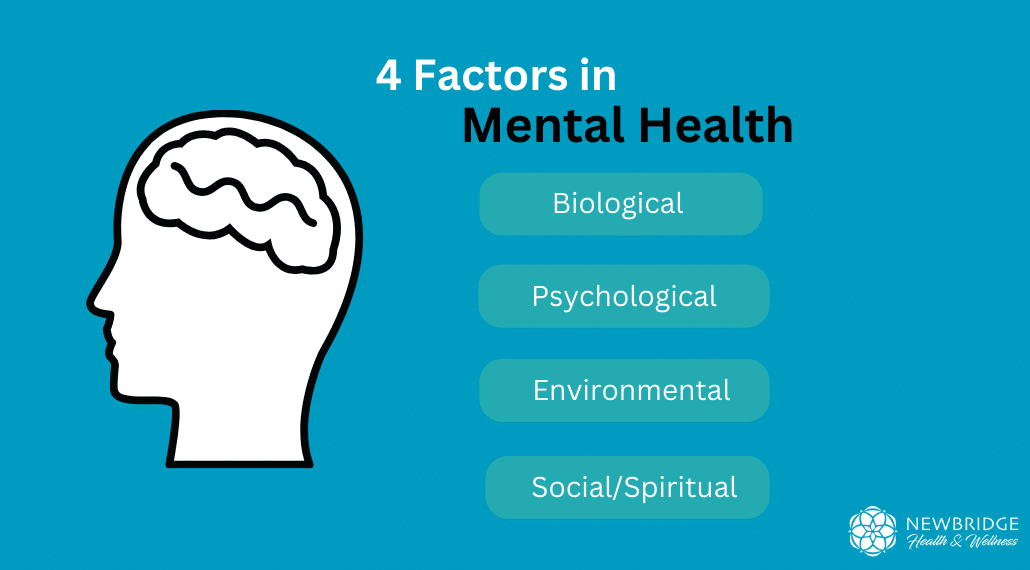The Serotonin Myth
Has your (or your child’s) anxiety or depression been treated with an antidepressant – such as a selective serotonin reuptake inhibitor (SSRI) medication – but you/they still feel the need for more treatment options because undesired symptoms remain? Depression and anxiety are often associated with imbalances in brain chemicals, particularly serotonin, which is referred to as the “feel-good” neurotransmitter because it is, indeed, a key player in mood regulation. Imbalances in serotonin can, indeed, contribute to depressive or anxiety symptoms. However, it’s overly simplistic to attribute mental health conditions solely to low serotonin levels. The brain is a highly intricate organ, and the causes of conditions like clinical depression and generalized anxiety disorder – and their related symptoms like panic attacks, irritability, fatigue, insomnia, and others, are multifactorial and not always solely about this single neurotransmitter. And this is why an integrative approach to mental health care – for both adults and children – is steadily gaining increased attention in the medical community.
Has your anxiety or depression been treated with an SSRI, but you are still suffering? Contact Newbridge Health & Wellness today to learn about our integrative approach to mental health.

4 Factors in Mental Health
- Biological – neurotransmitters, hormones, and inflammation
- Psychological – trauma, stress, cognitive patterns, personality traits
- Environmental – toxins, diet, home environment
- Social & Spiritual – social support and spiritual support
Factors in Mental Health
Mental health function is a complex interplay of biological, psychological, environmental, and social factors, and an imbalance can lead to the development and management of disorders like anxiety and depression. By recognizing and addressing these multifaceted aspects, providers like primary care doctors and psychiatrists can establish more effective and personalized treatments for their patients, ultimately helping them onto a path of mental well-being. Approaches that include both conventional and alternative/holistic treatments are often helpful for individuals who do not improve through one method.
Biological Factors
- Neurotransmitters: While serotonin is important, other neurotransmitters like dopamine, norepinephrine, and gamma-aminobutyric acid (GABA) also play significant roles in mood regulation. Imbalances in any or all of these neurotransmitters can contribute to the development of mood disorders.
- Hormones: Hormonal imbalances, particularly in thyroid and sex hormones, can influence mood. Conditions like hypothyroidism and polycystic ovary syndrome (PCOS) may mimic symptoms of depression and anxiety.
- Inflammation: Chronic inflammation in the body has been linked to mental health issues. Inflammatory cytokines can affect brain function and contribute to depressive and anxious symptoms.
Each of the above factors can be further impacted by (or even caused by) two underlying issues including microbiome imbalances and/or infections – like lyme, Epstein-Bar Virus (EBV), and bacterial infections. Read more about these two root issues that may be contributing to dysfunction of hormones, neurotransmitters, and anti-inflammatory mechanisms in your body.
Psychological Factors
- Trauma and Stress: Past traumas and chronic stress can have a profound impact on mental health. They can lead to changes in brain structure and function, making individuals more susceptible to depression and anxiety.
- Cognitive Patterns: Negative thought patterns and cognitive distortions can exacerbate depressive and anxious symptoms. Cognitive-behavioral therapy (CBT) is an effective approach for addressing these patterns (and a modality utilized by our clinical counselor at Newbridge.)
- Personality Traits: Certain personality traits, such as perfectionism and neuroticism, are associated with a higher risk of developing mood disorders.
Environmental Factors
- Diet and Nutrition: What we eat can directly affect our mood. Nutrient deficiencies, excessive sugar intake, and food sensitivities can contribute to depressive and anxious symptoms.
- Toxin Exposure: Toxins in our environment can contribute to mental health problems. Heavy metals like lead, mercury, and cadmium are known neurotoxins that can affect brain function, and exposure to these substances, often through contaminated food, water, or occupational hazards, can lead to cognitive impairments and mood disorders. Environmental toxins such as air pollution and pesticides have also been linked to an increased risk of mental health issues. These toxins can trigger inflammation in the brain, which is believed to be a common factor in many mental health disorders.
- Mold in home: Mold biotoxin illness, also known as Chronic Inflammatory Response Syndrome (CIRS), is a condition that occurs when a person is exposed to mold and develops a chronic inflammatory response, often causing symptoms like anxiety, depression, and insomnia.
- Lifestyle Choices: Lack of exercise, poor sleep, and substance abuse can worsen or trigger mood disorders.
Social and Spiritual Factors
- Social Support: A lack of a supportive community or feelings of isolation can contribute to depression and anxiety.
- Existential and Spiritual Concerns: Questions about the meaning of life, purpose, and existential dilemmas can also impact mental health.
Taking an Integrative Approach
Depression and anxiety disorders are complex conditions that can cause a range of symptoms that vary from person to person – panic attacks, trouble sleeping, GI problems, low mood, tiredness, restlessness, pain, and many others – and often cannot be boiled down to a single neurotransmitter like serotonin. An integrative approach to mental health care acknowledges the intricate interplay of biological, psychological, environmental, and social factors in the development and management of these disorders. By recognizing and addressing these multifaceted aspects, providers can offer more effective and personalized treatments, ultimately helping individuals on their path to mental well-being.
Ready to take a deeper dive into your mental health to determine if your symptoms may be due to more than a serotonin deficiency? Contact Newbridge to learn more about our integrative approach to mental health.


